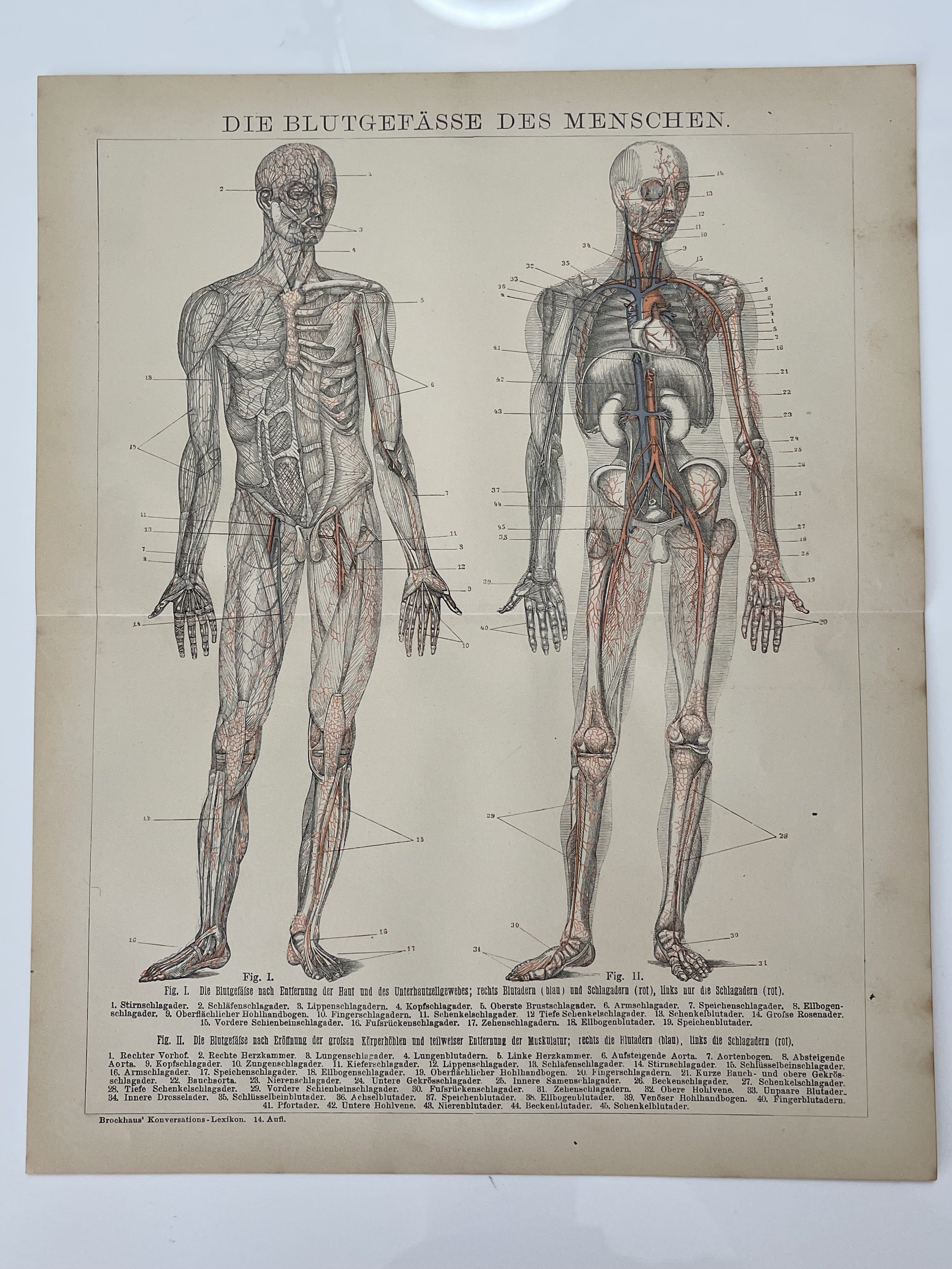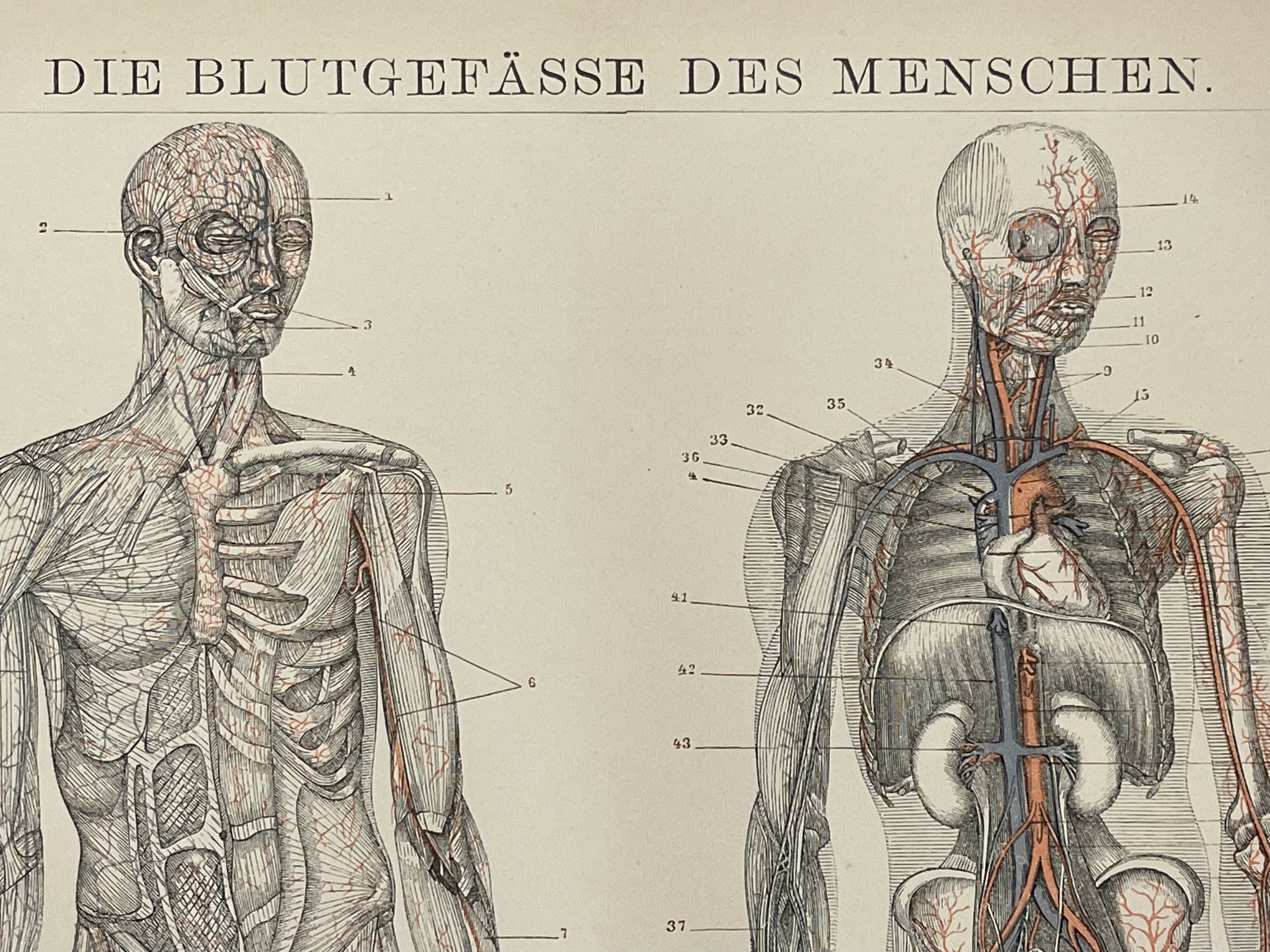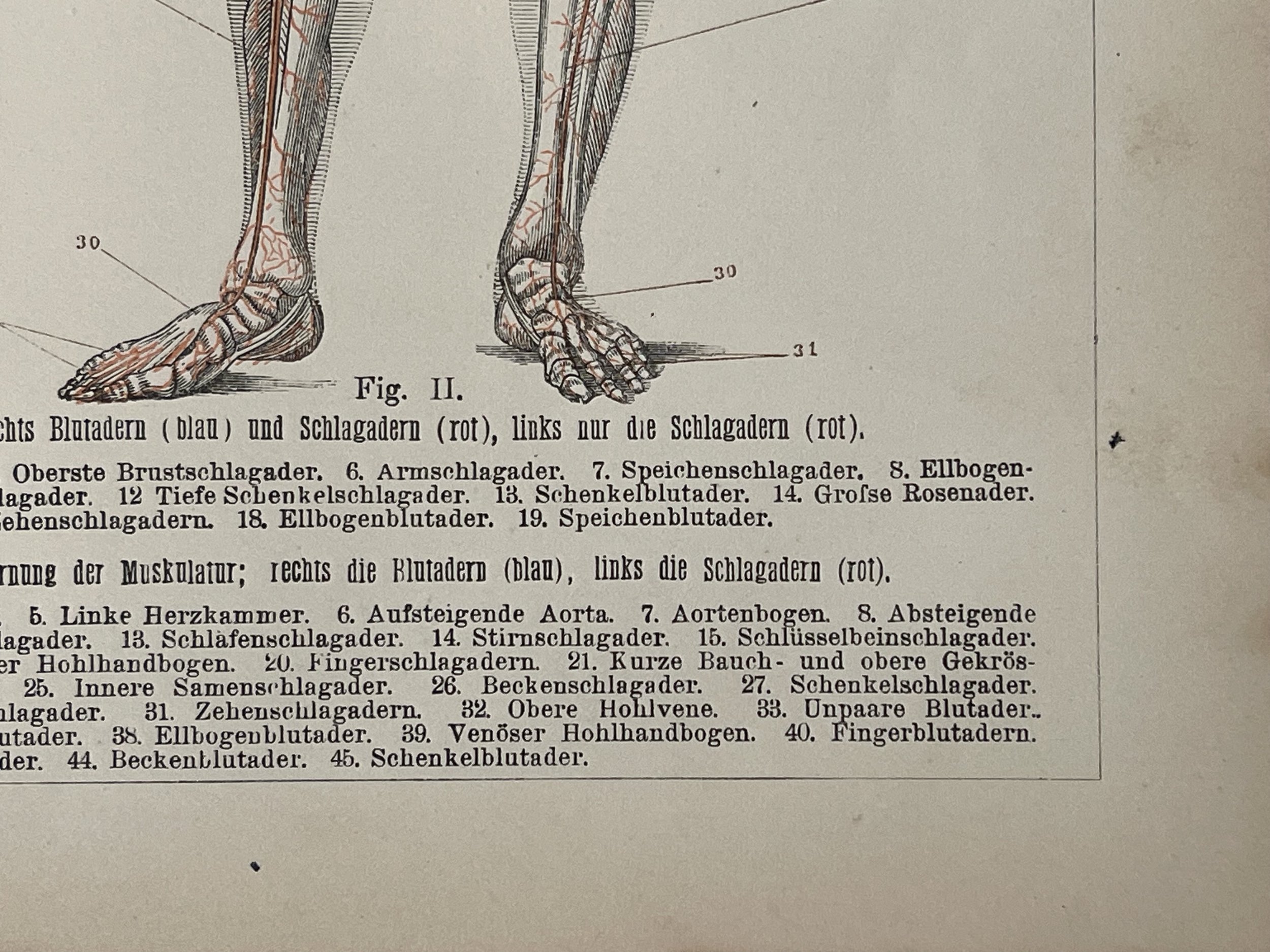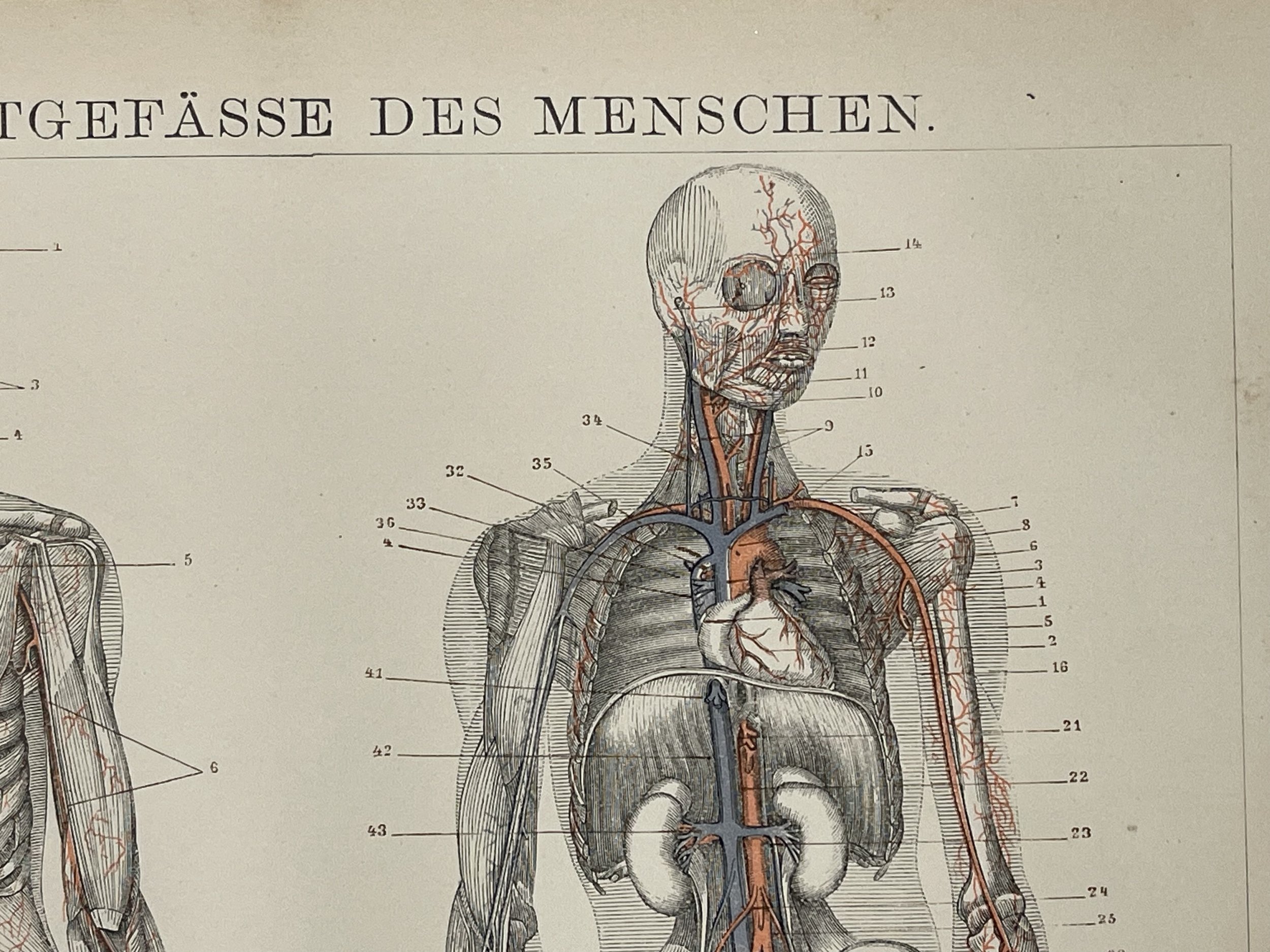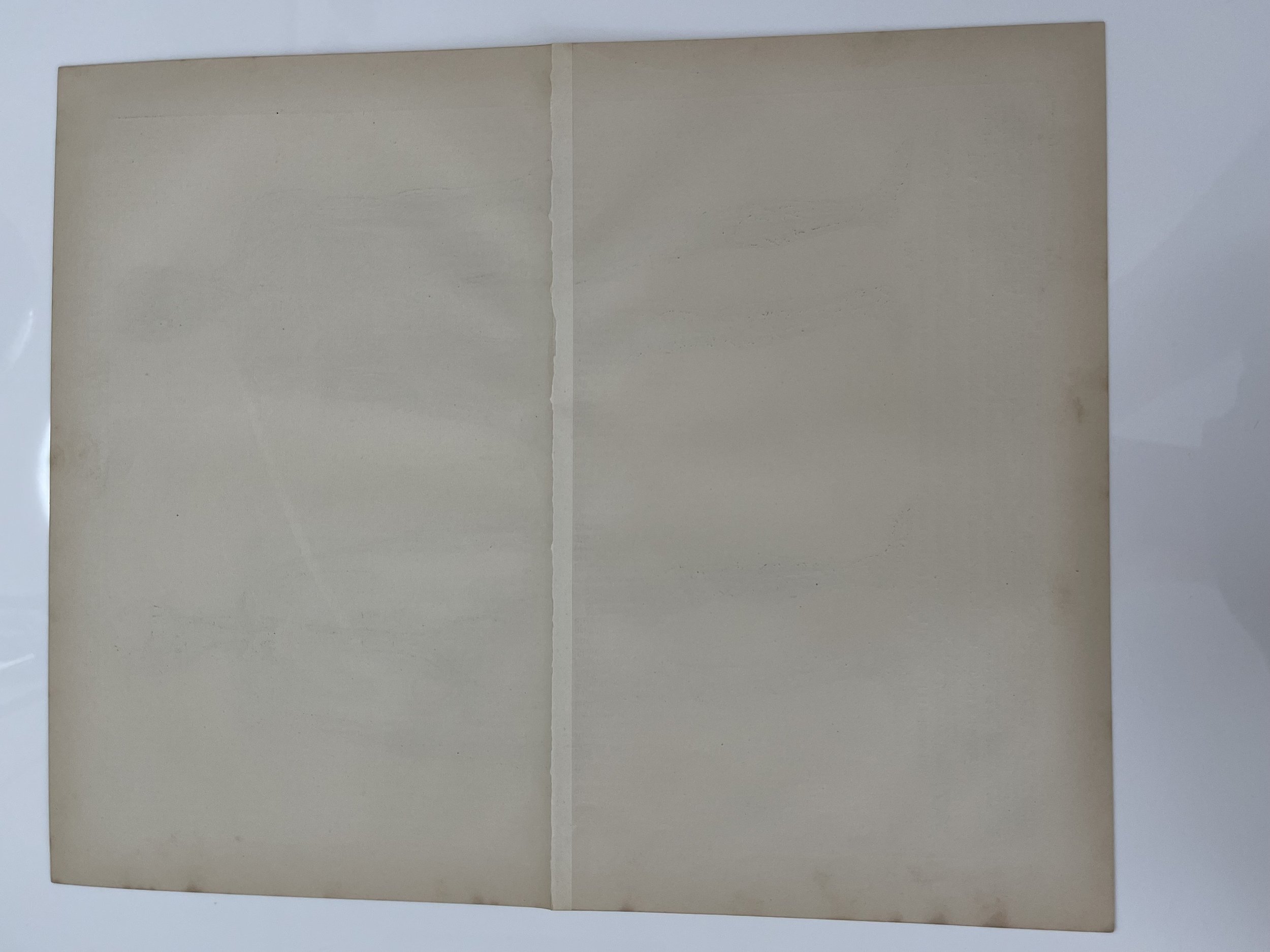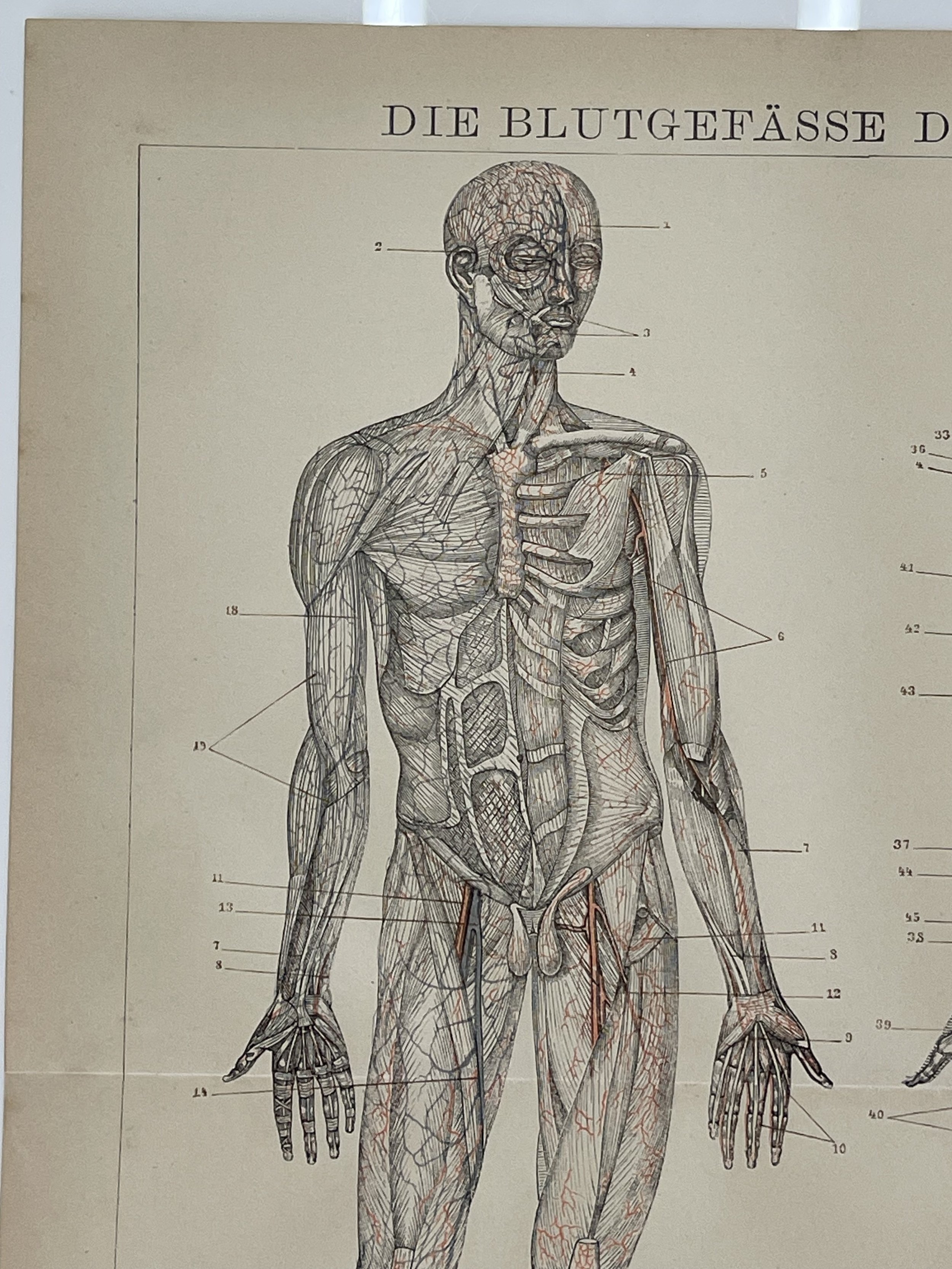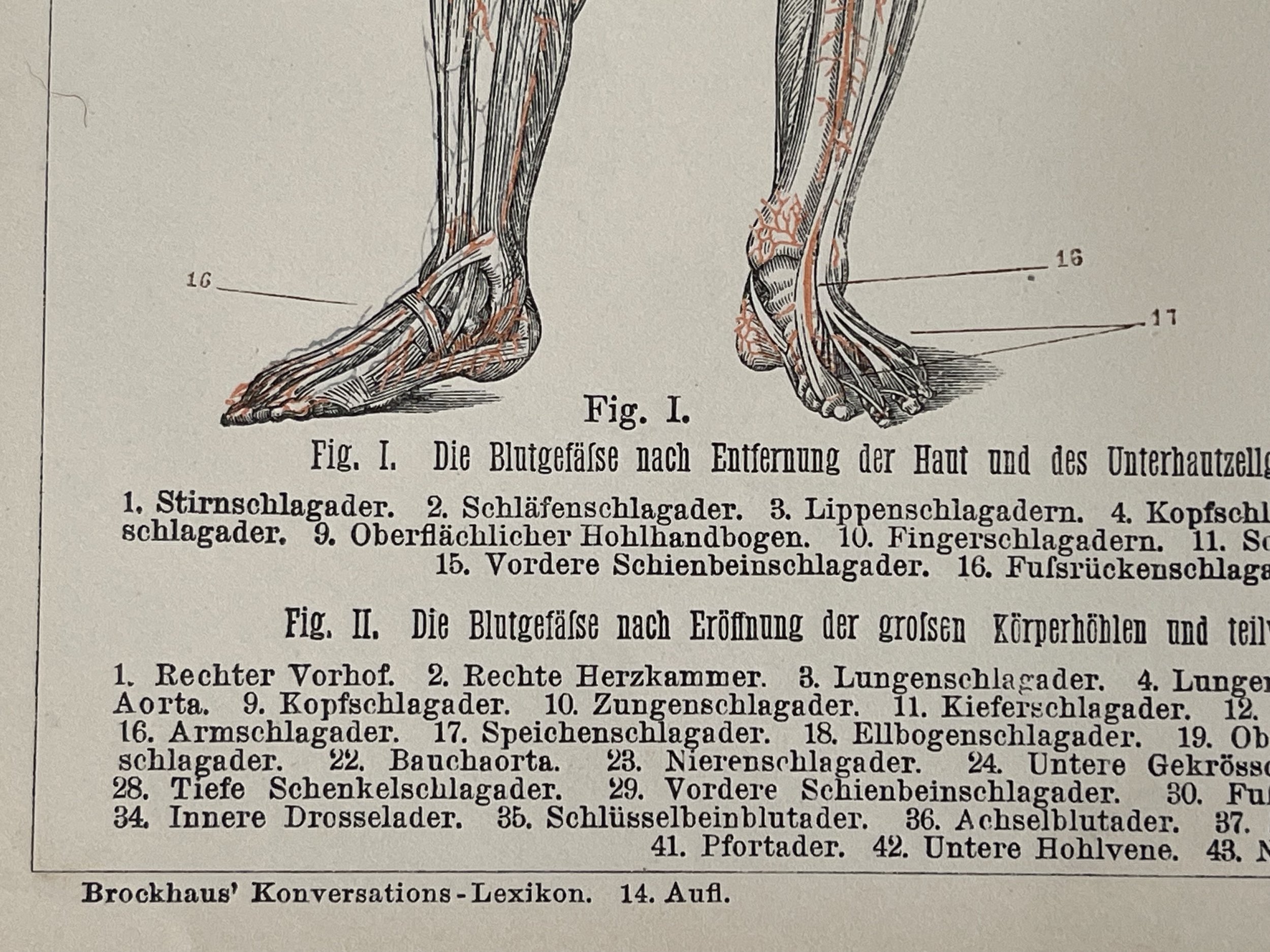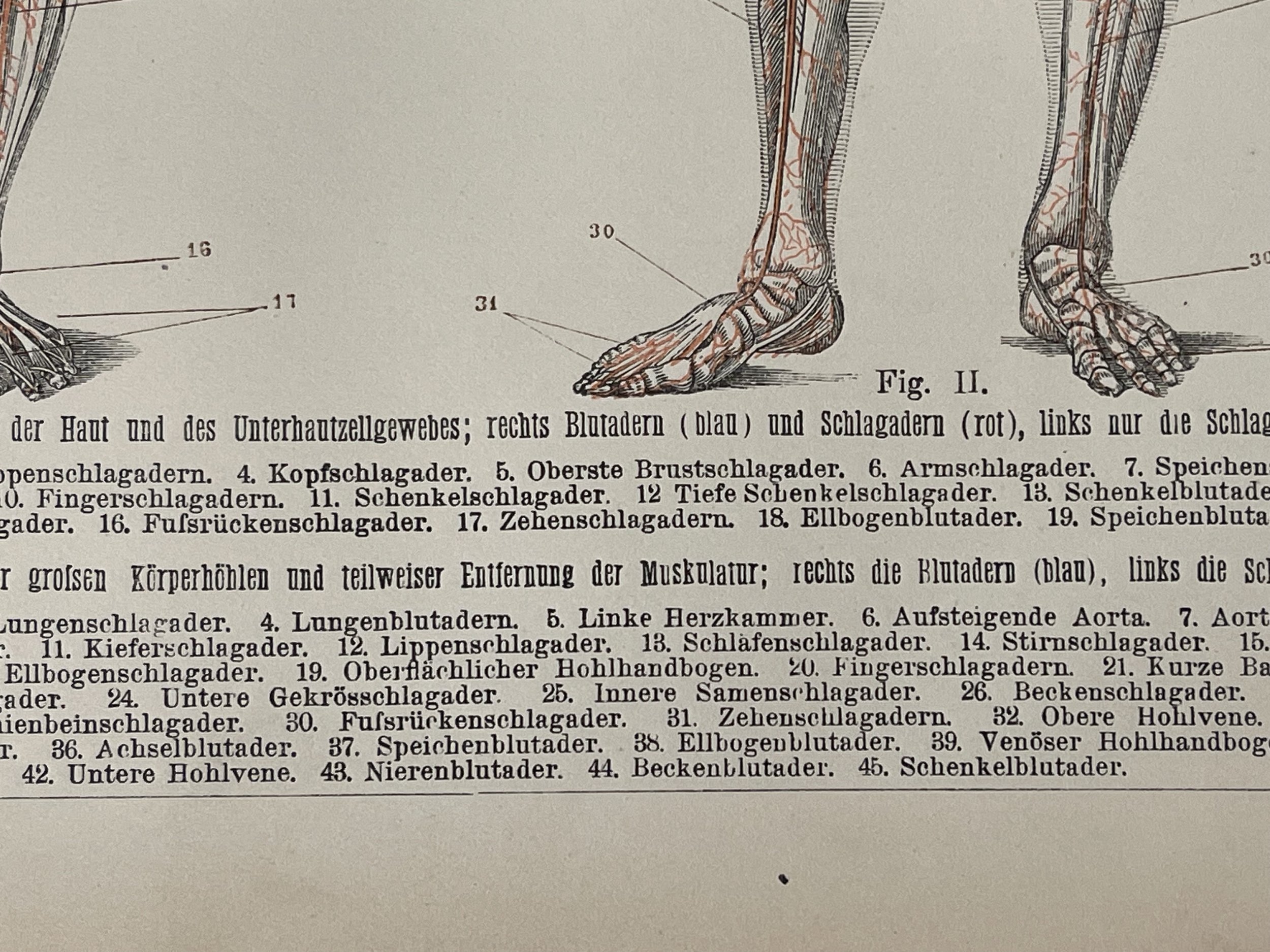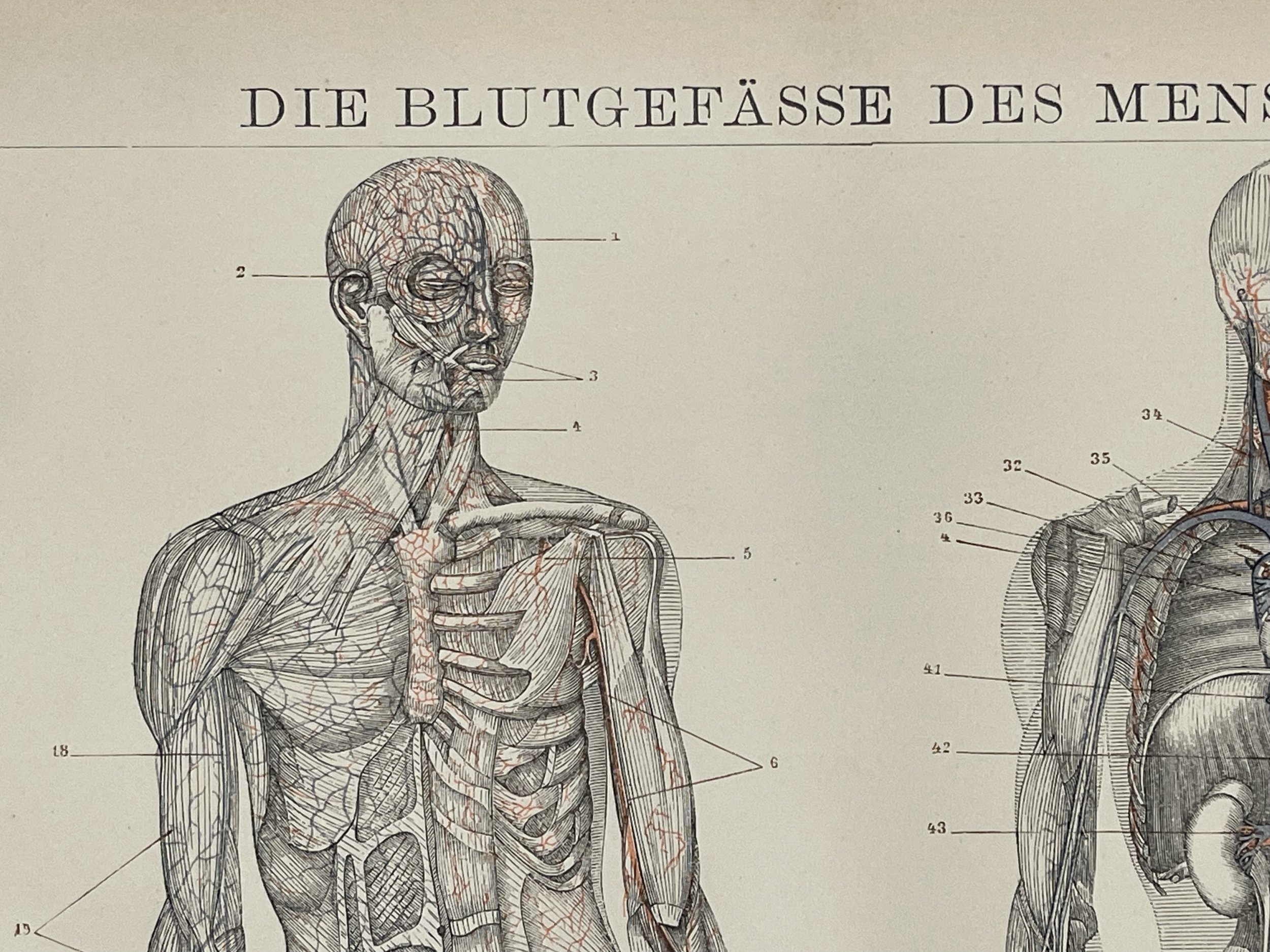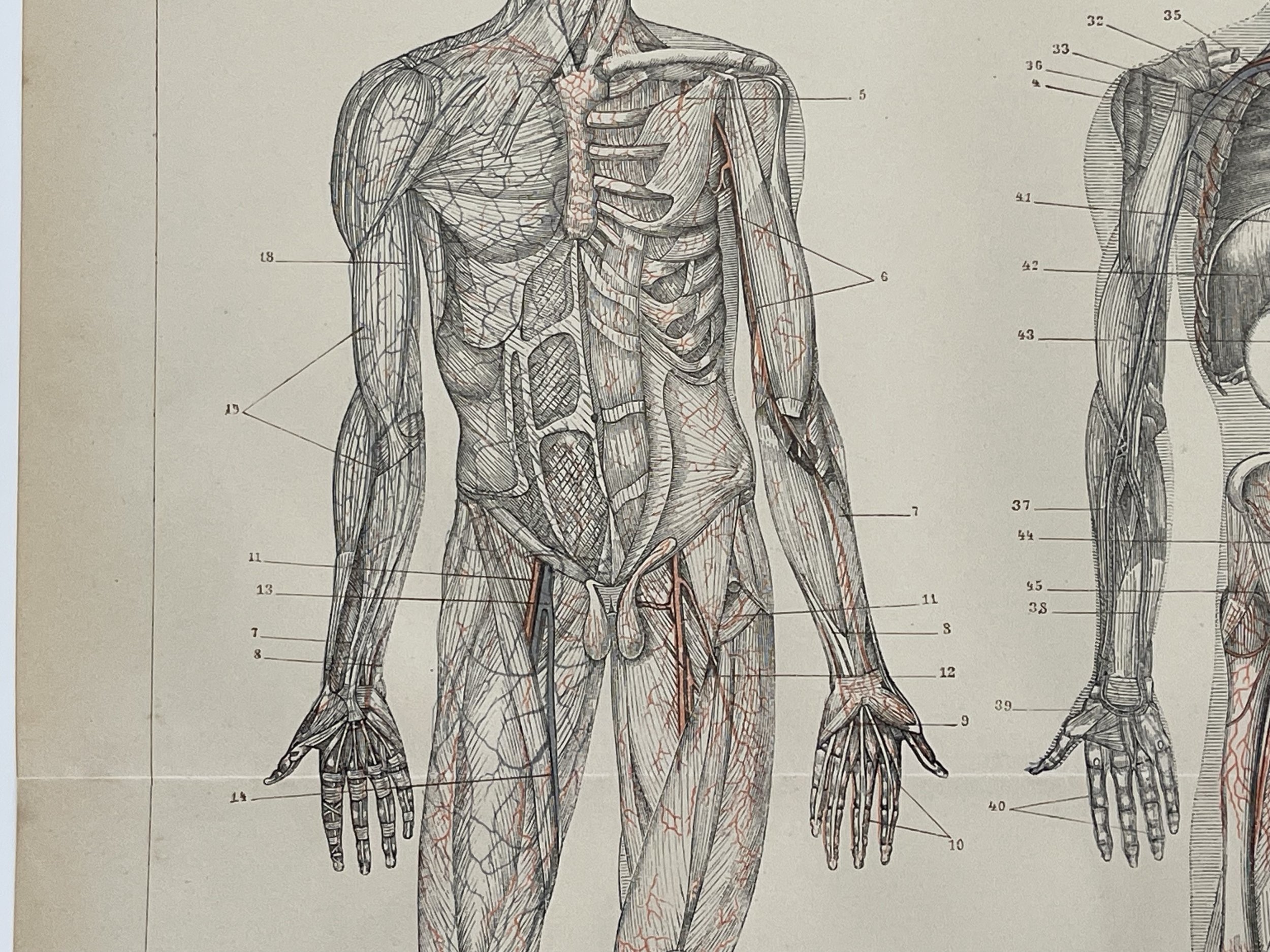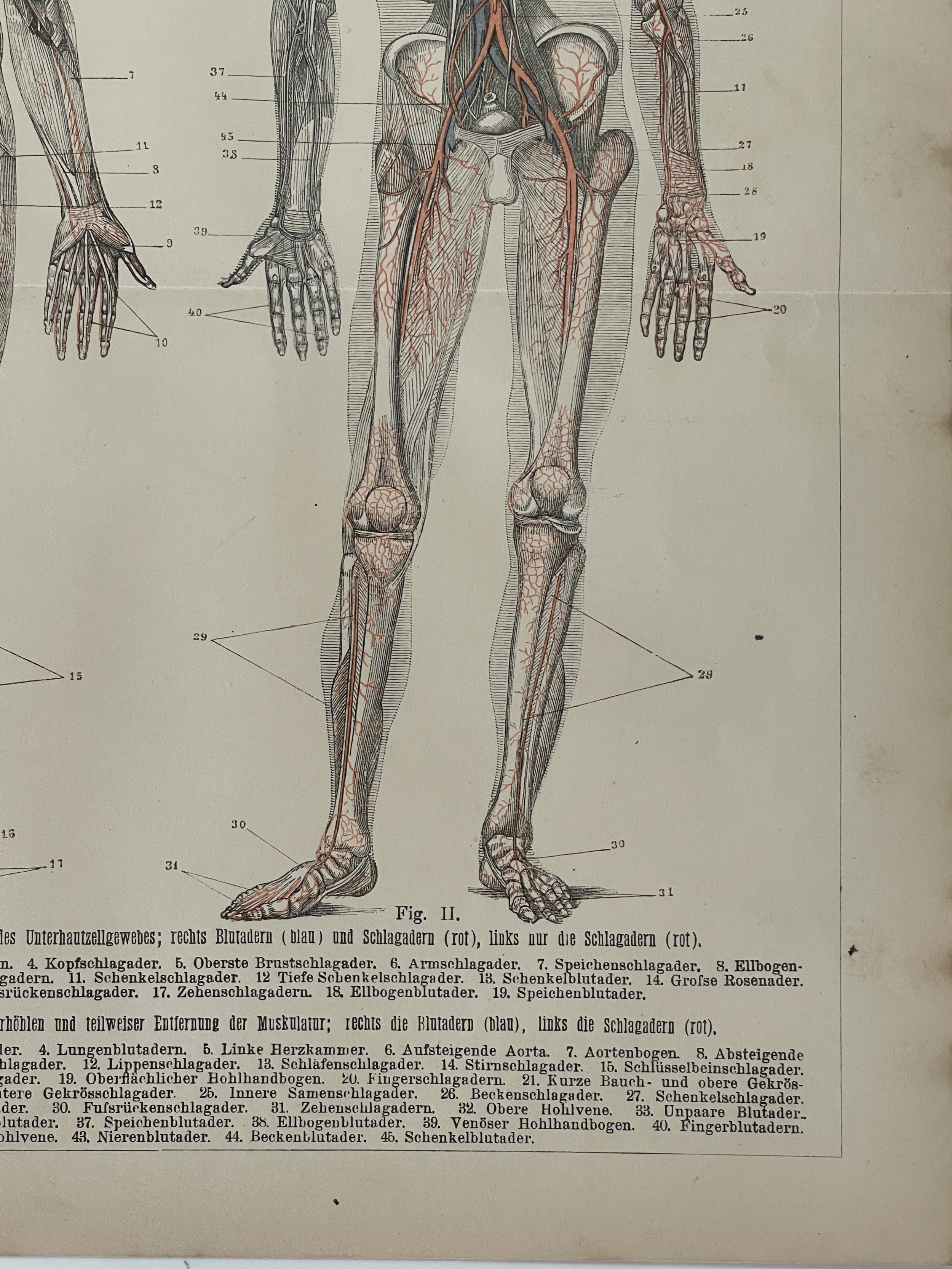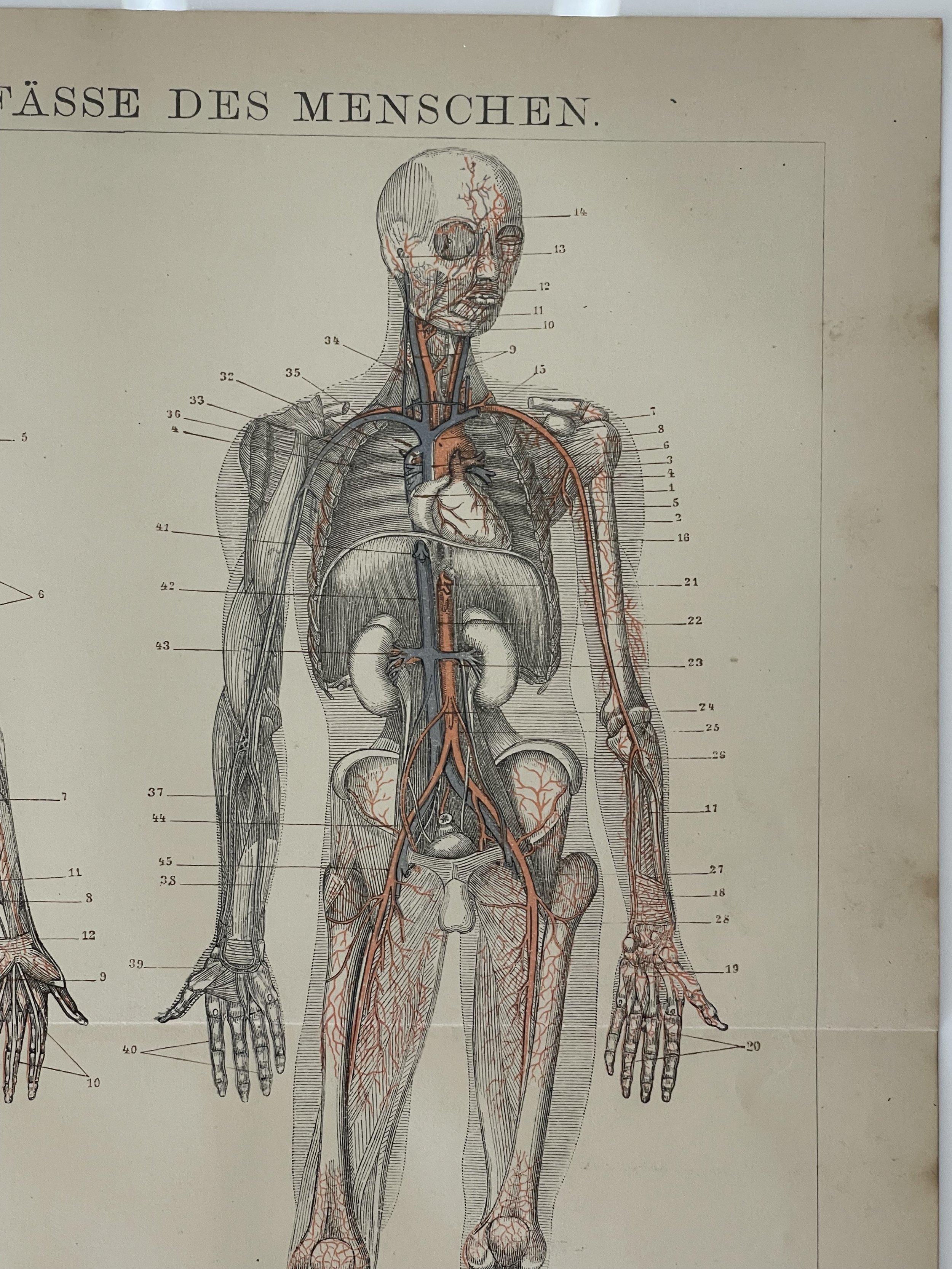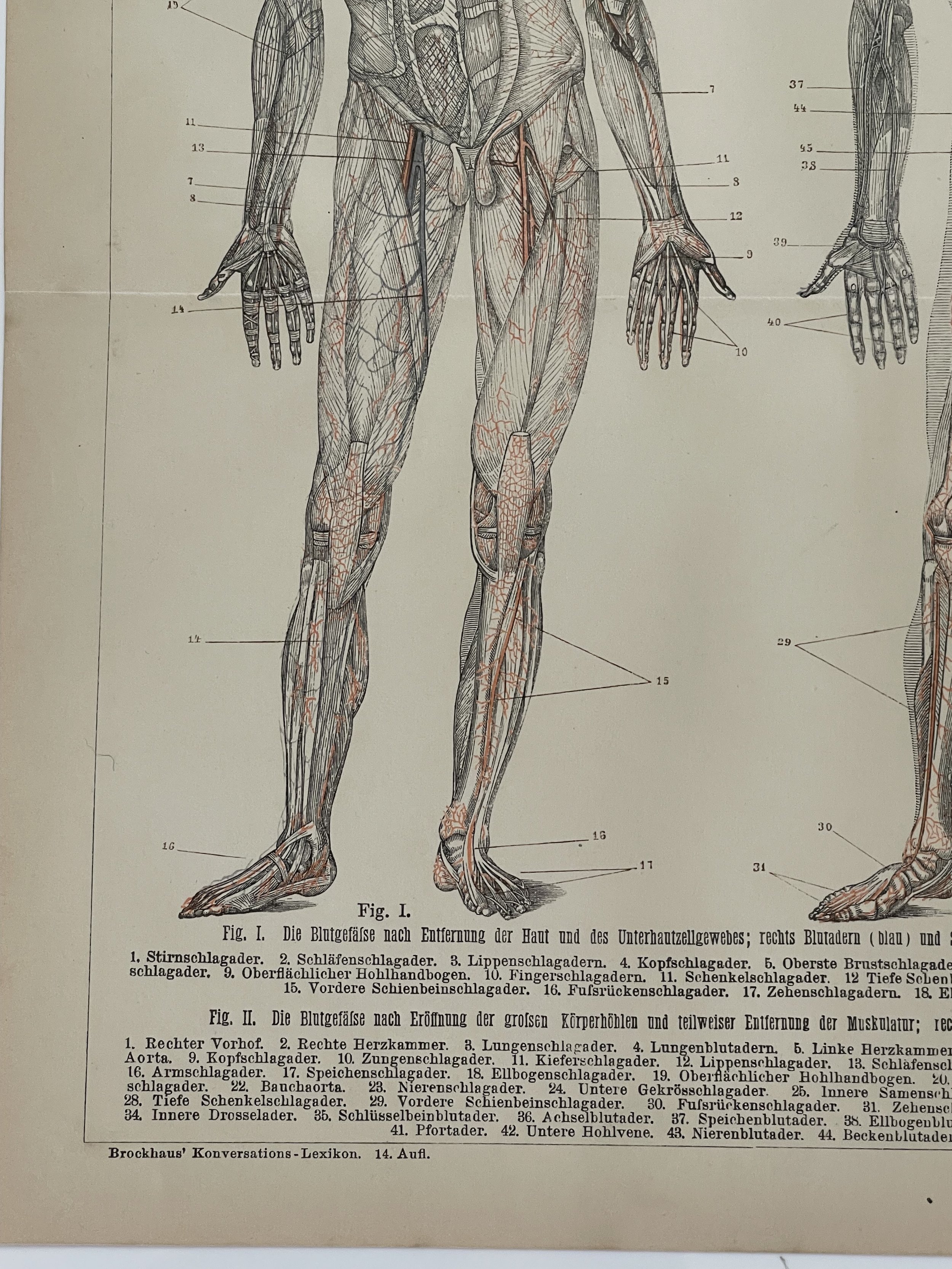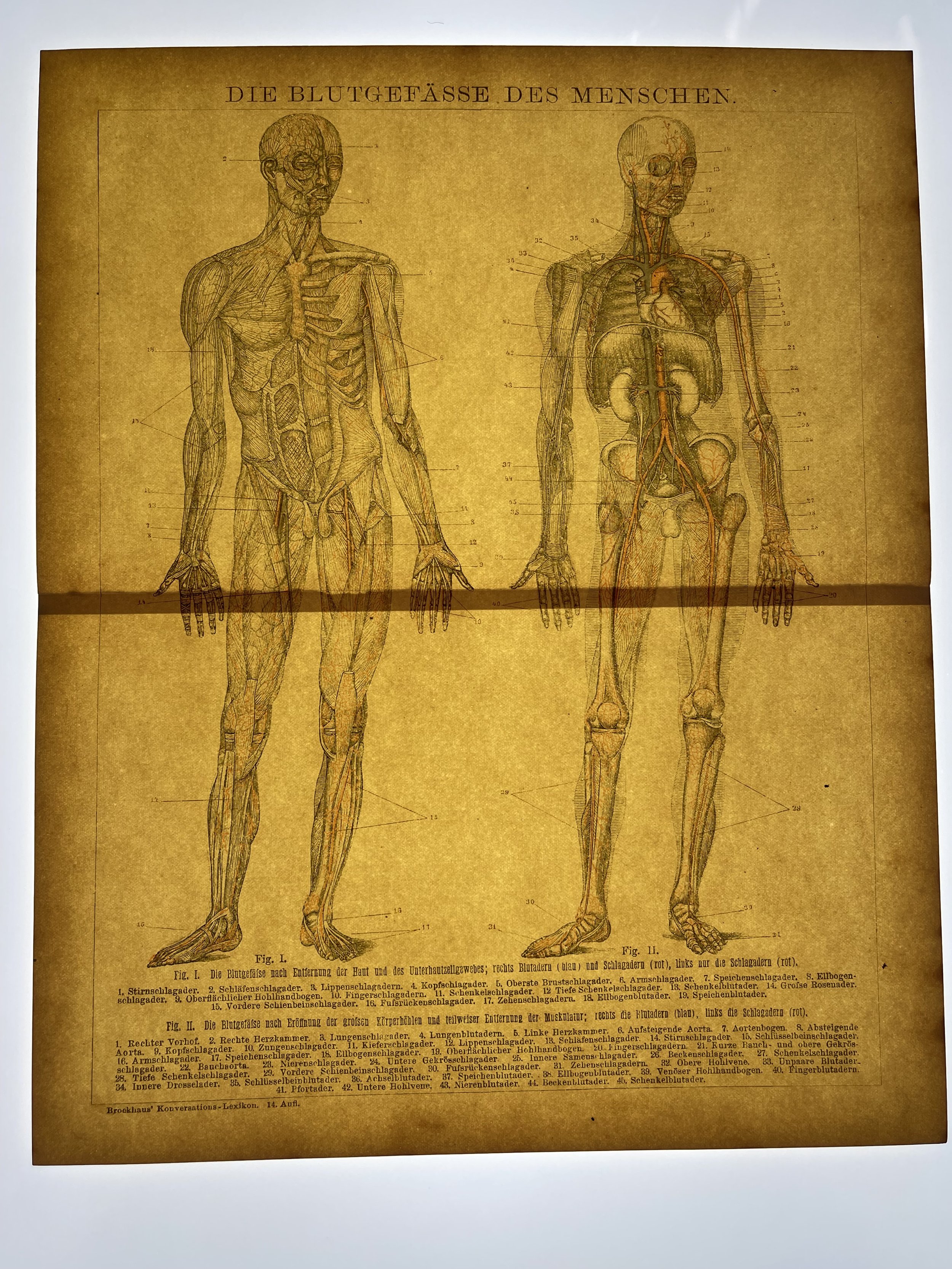Human Vascular system - Meyers Konversations-Lexikon - Friedrich Arnold Brockhaus - 1902
Human Vascular system anatomy medicine science antique chromolithograph. Antique / Vintage Chromolithograph of Die Bluttegefässe des Menschen / The Human Vascular System. Book illustration (engraving) from 1897 - maps and graphics
Friedrich Arnold Brockhaus (4 May 1772 – 20 August 1823) was a renowned German publisher and editor known for his work in producing the Conversations-Lexikon, a well-known encyclopaedia now published as the Brockhaus encyclopaedia.
Brockhaus received his education at the gymnasium in his hometown of Dortmund, and from 1788 to 1793, he apprenticed at a mercantile house in Düsseldorf. Afterwards, he spent two years studying modern languages and literature at the University of Leipzig, before establishing a business selling English goods in Dortmund. In 1801, he moved his business to Arnheim and then to Amsterdam in the following year.
In 1805, Brockhaus left his initial trade and entered the publishing industry. However, government interference led to the premature closure of two journals he had started. In 1810, the political situation in Holland prompted his return to Dortmund. There, in 1811, he acquired the copyright for the bankrupt Conversations-Lexikon, an encyclopaedia first published in 1796. He completed the first edition of this esteemed work in 1810-1811, and it went on to inspire many other encyclopaedias. Today, it is still in publication under the name Brockhaus Encyclopaedia.
Brockhaus began a second edition of the encyclopaedia in 1812, which was received with widespread acclaim. With his business expanding rapidly, he relocated to Leipzig in 1818 and established a large printing house. In addition to his extensive literary works, such as journals and historical and bibliographical works, Brockhaus also published the critical periodicals "Hermes," "Literarisches Konversationsblatt" (later known as "Blätter für literarische Unterhaltung"), and "Zeitgenossen." These publications gained him recognition in the literary world.
After Brockhaus's passing in Leipzig, his sons Friedrich Brockhaus (1800-1865), who retired in 1850, and Heinrich Brockhaus (1804-1874), who significantly expanded the business, took over. Heinrich also made significant contributions to the fields of literature and science, which led to him receiving an honorary Doctor of Philosophy degree from the University of Jena in 1858. He also served as a member of the Saxon second chamber (1842-1848) and was named an honorary citizen of Leipzig in 1872. He passed away on November 15, 1874.
The company continued to operate under the name F.A. Brockhaus AG in honor of Heinrich Brockhaus. He was also recognized posthumously as a main-belt asteroid, named "27765 Brockhaus," was discovered in 1991.
Human Vascular system anatomy medicine science antique chromolithograph. Antique / Vintage Chromolithograph of Die Bluttegefässe des Menschen / The Human Vascular System. Book illustration (engraving) from 1897 - maps and graphics
Friedrich Arnold Brockhaus (4 May 1772 – 20 August 1823) was a renowned German publisher and editor known for his work in producing the Conversations-Lexikon, a well-known encyclopaedia now published as the Brockhaus encyclopaedia.
Brockhaus received his education at the gymnasium in his hometown of Dortmund, and from 1788 to 1793, he apprenticed at a mercantile house in Düsseldorf. Afterwards, he spent two years studying modern languages and literature at the University of Leipzig, before establishing a business selling English goods in Dortmund. In 1801, he moved his business to Arnheim and then to Amsterdam in the following year.
In 1805, Brockhaus left his initial trade and entered the publishing industry. However, government interference led to the premature closure of two journals he had started. In 1810, the political situation in Holland prompted his return to Dortmund. There, in 1811, he acquired the copyright for the bankrupt Conversations-Lexikon, an encyclopaedia first published in 1796. He completed the first edition of this esteemed work in 1810-1811, and it went on to inspire many other encyclopaedias. Today, it is still in publication under the name Brockhaus Encyclopaedia.
Brockhaus began a second edition of the encyclopaedia in 1812, which was received with widespread acclaim. With his business expanding rapidly, he relocated to Leipzig in 1818 and established a large printing house. In addition to his extensive literary works, such as journals and historical and bibliographical works, Brockhaus also published the critical periodicals "Hermes," "Literarisches Konversationsblatt" (later known as "Blätter für literarische Unterhaltung"), and "Zeitgenossen." These publications gained him recognition in the literary world.
After Brockhaus's passing in Leipzig, his sons Friedrich Brockhaus (1800-1865), who retired in 1850, and Heinrich Brockhaus (1804-1874), who significantly expanded the business, took over. Heinrich also made significant contributions to the fields of literature and science, which led to him receiving an honorary Doctor of Philosophy degree from the University of Jena in 1858. He also served as a member of the Saxon second chamber (1842-1848) and was named an honorary citizen of Leipzig in 1872. He passed away on November 15, 1874.
The company continued to operate under the name F.A. Brockhaus AG in honor of Heinrich Brockhaus. He was also recognized posthumously as a main-belt asteroid, named "27765 Brockhaus," was discovered in 1991.
Human Vascular system anatomy medicine science antique chromolithograph. Antique / Vintage Chromolithograph of Die Bluttegefässe des Menschen / The Human Vascular System. Book illustration (engraving) from 1897 - maps and graphics
Friedrich Arnold Brockhaus (4 May 1772 – 20 August 1823) was a renowned German publisher and editor known for his work in producing the Conversations-Lexikon, a well-known encyclopaedia now published as the Brockhaus encyclopaedia.
Brockhaus received his education at the gymnasium in his hometown of Dortmund, and from 1788 to 1793, he apprenticed at a mercantile house in Düsseldorf. Afterwards, he spent two years studying modern languages and literature at the University of Leipzig, before establishing a business selling English goods in Dortmund. In 1801, he moved his business to Arnheim and then to Amsterdam in the following year.
In 1805, Brockhaus left his initial trade and entered the publishing industry. However, government interference led to the premature closure of two journals he had started. In 1810, the political situation in Holland prompted his return to Dortmund. There, in 1811, he acquired the copyright for the bankrupt Conversations-Lexikon, an encyclopaedia first published in 1796. He completed the first edition of this esteemed work in 1810-1811, and it went on to inspire many other encyclopaedias. Today, it is still in publication under the name Brockhaus Encyclopaedia.
Brockhaus began a second edition of the encyclopaedia in 1812, which was received with widespread acclaim. With his business expanding rapidly, he relocated to Leipzig in 1818 and established a large printing house. In addition to his extensive literary works, such as journals and historical and bibliographical works, Brockhaus also published the critical periodicals "Hermes," "Literarisches Konversationsblatt" (later known as "Blätter für literarische Unterhaltung"), and "Zeitgenossen." These publications gained him recognition in the literary world.
After Brockhaus's passing in Leipzig, his sons Friedrich Brockhaus (1800-1865), who retired in 1850, and Heinrich Brockhaus (1804-1874), who significantly expanded the business, took over. Heinrich also made significant contributions to the fields of literature and science, which led to him receiving an honorary Doctor of Philosophy degree from the University of Jena in 1858. He also served as a member of the Saxon second chamber (1842-1848) and was named an honorary citizen of Leipzig in 1872. He passed away on November 15, 1874.
The company continued to operate under the name F.A. Brockhaus AG in honor of Heinrich Brockhaus. He was also recognized posthumously as a main-belt asteroid, named "27765 Brockhaus," was discovered in 1991.
Code : A849
Cartographer : Cartographer / Engraver / Publisher: Friedrich Arnold Brockhaus
Date : Publication Place / Date - 1902
Size : Sheet size: 31 x 25 Cm
Availability : Available
Type - Genuine - Antique
Grading A+
Where Applicable - Folds as issued. Light box photo shows the folio leaf centre margin hinge ‘glue’, this is not visible otherwise.
Tracked postage, in casement. Please contact me for postal quotation outside of the UK.
